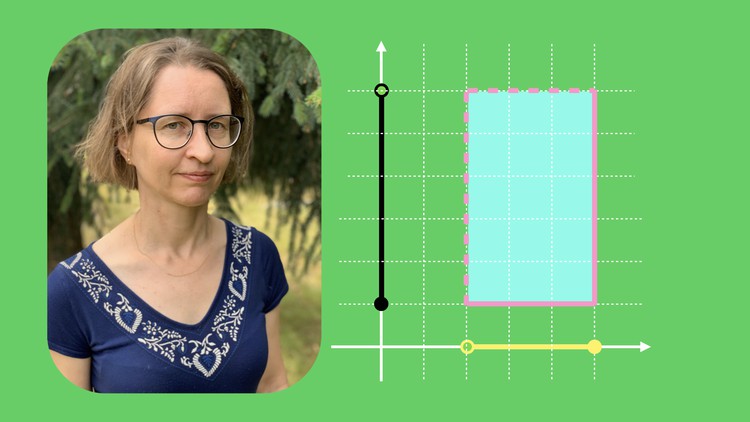Precalculus 1: Basic notions
A solid preparation for Calculus, with elements of discrete mathematics: logic, sets, functions, relations, and proofs
4.91 (837 reviews)

5,052
students
52 hours
content
Mar 2025
last update
$84.99
regular price
What you will learn
How to solve problems in chosen Precalculus topics (illustrated with 236 solved problems) and why these methods work.
Repetition of chosen aspects of high school mathematics (basic notions as numbers, functions, sets, equations, and inequalities).
The basic notions will be defined in a more abstract way, and you will get an insight into their place in Calculus and some other branches of university maths.
By the end of this course you will be able to understand all the elements in the epsilon-delta definition of limit, both symbols and the content.
Arithmetic with basic rules (associativity and commutativity of addition and multiplication, distributivity) illustrated for positive integers.
Basic terminology for equations and inequalities, with examples of linear equations and inequalities, with and without absolute value.
Basic concepts related to functions (domain, range, graph, surjection, injection, bijection, inverse, composition) and how to work with them.
Functions: monotone (increasing, decreasing), bounded, even, odd; extremum: maximum, minimum, both local and global.
Geometrical operations on graphs of functions: translations, reflections, shrinking, dilating. Piecewise functions.
Absolute value and its role in computing distances, with geometrical illustrations and functional approach.
Equations of straight lines in the plane: slope and intercept; first glimpse into derivative as the slope of the tangent line, and link to monotonicity.
Introduction to sequences and series; short notation for sum (Sigma) and product (Pi); arithmetic, geometric, and harmonic progressions.
Logic: symbols and rules (tautologies) used for creating mathematical statements, definitions, and proofs.
Set theory: union, intersection, complement, set difference; some important rules and notation.
Relations: RST (equivalence) relations, order relations, functions as relations.
Necessary and sufficient conditions: definition and examples.
Various types of proofs: direct, indirect, by contradiction, induction proof, with some examples.
Building blocks of mathematical theories: axioms, definitions, theorems, propositions, lemmas, corollaries, etc.
Decimal expansion of rational and irrational numbers. Density of Q and R\Q in R.
Cardinality of sets: finite sets, N, Z, Q, R; countable and uncountable sets.
You will also get a solid background for any future studies in Real Analysis and other courses in university mathematics.
Screenshots




Related Topics
4380230
udemy ID
11/3/2021
course created date
2/4/2022
course indexed date
Bot
course submited by